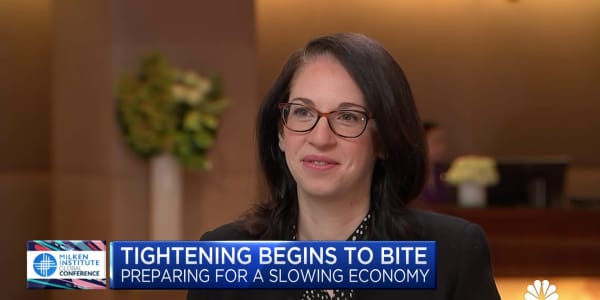
Investors should expect a surge in stocks over the next 12 to 18 months before they fall off a cliff amid a recession in 2020, according to Scott Minerd of Guggenheim Partners.
"I think stocks will go up another 15 to 20 percent, but ultimately, when the recession arrives — and it will arrive — there's going to be a very hard sell-off in equities," the firm's global chief investment officer told CNBC's Brian Sullivan at the 2018 Milken Global Investment Conference on Tuesday. The interviewed aired on CNBC's "Worldwide Exchange."
He said stocks will look more attractive to investors in the near term as valuations come down due to higher risk premiums.
"Right now, in the penultimate year before a recession, because we think a recession is coming in 2020, that typically is a very good year for equities," Minerd said. But "the longer the expansion has been, the more likely the sell-off will be hard."
The U.S. economy is on its second-longest expansion on record, growing for 106-straight months. However, U.S. stocks have been under pressure in 2018. Year to date, the is down nearly 1 percent after reaching an all-time high on Jan. 26.
Minerd also reiterated his call for a 40 to 45 percent drop in stocks starting in late 2019 and into 2020 as the U.S. economy enters a recession. He previously made his prediction last month during another interview with CNBC.
"Recessions occur when the economy reaches constraints. As the economy reaches constraints, prices begin to rise and the Federal Reserve has to raise interest rates and, as I like to say: Every economic expansion does not die of old age; it dies because the Federal Reserve shoots it in the head," Minerd said Tuesday.
—CNBC's Matthew J. Belvedere contributed to this report.





